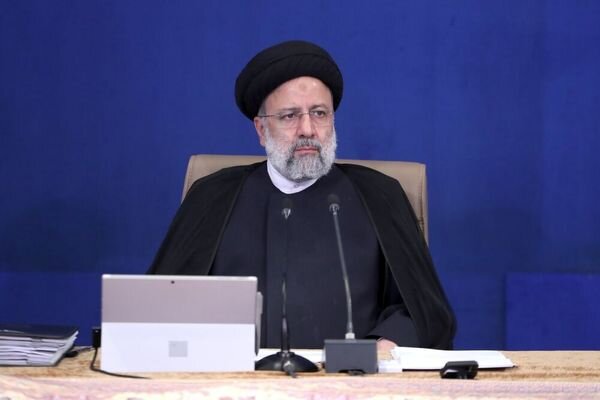Iran never binds development to JCPOA or give up on negotiations: Raisi

TEHRAN- Iranian President Ebrahim Raisi reiterated on Friday that the Islamic Republic will not tie its advancement to the 2015 nuclear deal or abandon the negotiating table to resurrect the agreement.
The latest round of talks to revitalize the nuclear deal, officially known as the Joint Comprehensive Plan of Action (JCPOA), ended on Monday.
“We won't link the country's development and problem-solving to the JCPOA. Additionally, the Iranian negotiation delegation will not leave the table,” Raisi said in Kerman, southeast Iran.
He asserted that the smiles and scowls of others will never impede Iran's development or prosperity.
Raisi stated that the negotiation team will carry on with its work based on extremely solid justifications.
The president went on to highlight that “we will seriously address Iran’s economic and cultural circumstances regardless of the path the JCPOA revival negotiations take and what will happen in the future.”
He said that Iran will implement its plans with the involvement people and elites, in spite of the adversaries' wishes, and the nation's future is promising. "We won't allow the adversaries to achieve their goal, which is to halt production and obliterate the Iranian economy and culture."
Since April of last year, talks have been underway in Vienna, Austria, to revive the JCPOA, which former U.S. President Donald Trump terminated in May 2018. The talks have been held between Iran, the European trio (Britain, France, Germany), Russia and China. The U.S. was also involved in the talks indirectly as Iran has refused to talk directly with the United States. The talks were coordinated by European Union coordinator Enrique Mora.
By pulling out of the accord, Trump launched a campaign of “maximum pressure” to subdue Iran. Additionally, Washington reinstated the unilateral sanctions against Tehran that had been lifted as a result of the JCPOA. The U.S. itself and the European Union have acknowledged that the “maximum pressure” have failed.
Since several crucial issues, including the lifting of all post-JCPOA sanctions and the supply of guarantees that the American side would not withdraw from the agreement again, still remain unresolved, the talks have not yet borne the desired results. Iran has blamed Washington's political indecision for the prolongation of the negotiations.
Hossein Amir Abdollahian, the foreign minister of Iran, stated last month that negotiations on a prospective resurrection of the 2015 accord should include strong assurances since Iran needs to profit economically from the pact.
However, the last round of talks was promising as EU foreign policy chief Josep Borrell presented a draft text for Iran and the U.S. to decide. Iran is already studying the text.
Iran has serious reservations about the text, mainly issues related to safeguards. Iran is insisting that the unsubstantiated allegations about its nuclear activities must come to an end.
